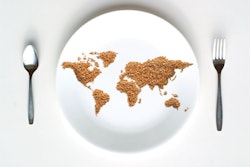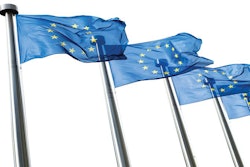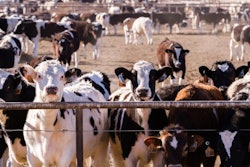
Farm to Fork targets could erode Europe’s ability to achieve self-sufficient food supply, industry leaders say
The European Union’s new Farm to Fork strategy, revealed for the first time this week, is drawing criticism from animal feed and agriculture industry groups who say the policy goals it sets forth stand to undermine, rather than shore up, regional food security.
The Farm to Fork strategy, part of the EU’s Green Deal for addressing climate change, was originally intended to focus on reducing carbon emissions, as well as the use of antibiotics and fertilizers. After the start of the novel coronavirus (COVID-19) pandemic, the release of the strategy was delayed to enable the European Commission to integrate lessons learned during the pandemic, and to refocus around the need for resilient supply chains.
“It is clear that we need to do much more to keep ourselves and the planet healthy,” the strategy’s forward reads. “The current pandemic is just one example. The increasing recurrence of droughts, floods, forest fires and new pests are a constant reminder that our food system is under threat and must become more sustainable and resilient.”
But ag industry groups in the EU have expressed concern about the document, which they say sets forth conflicting goals that stand to undermine supply chain resilience and increase dependency on imports.
The strategy is built on three central tenants: achieving a neutral or positive environmental impact in agriculture; ensuring food security for consumers; and generating fair income returns to support supply chains. It expressed a desire for a circular, “bio-based” economy and charges the European Commission that fosters the use of food waste as fertilizers, animal feed and bioenergy. It also charges the commission with creating rules to reduce the dependency on soy and to promote the use of alternative feed materials in addition to promoting EU-produced, plant-based proteins to consumers.
The document also outlines several goals to be achieved within agriculture by the year 2030, including:
- A 50% reduction in the use of pesticides
- A 20% reduction in the use of fertilizers
- A 50% reduction in the use of antibiotics in farmed animals and aquaculture
- The conversion of at least 25% of the EU’s agricultural lands to organic practices
The plan also calls on the commission to develop a contingency plan to ensure food security in times of crisis, and to propose legally binding targets for reducing food waste. It sets a 2023 deadline for the proposal of a legislative framework for accomplishing these goals.
Farm to Fork Industry Response
“We share some of the overall objectives of the [Farm to Fork] communication on sustainable food systems,” said Nick Major, president of the European Feed Manufacturers’ Federation (FEFAC), in a statement. “We do, however, fear that conflicting policy targets and measures announced in the EU Commission communication may actually undermine the EU’s food production capacity and global leadership role in developing resource efficient, sustainable and circular food production systems.”
Major went on to say that while FEFAC supports the new emphasis on food security, the organization hopes the EU undertakes a more comprehensive impact assessment before enacting any specific legislative measures to avoid “unintended consequences.”
FEFAC expressed support for the strategy’s stated intent to create incentives and programs to raise farm income and help producers “do more with less.” However, the trade organization also expressed “deep concern” about the strategy’s goal of increasing production of vegetable proteins. The organization argues farm animals play a key role in circular economy principals by converting human-inedible feed materials into milk, meat and eggs. Farm animals also produce organic fertilizers for crops, FEFAC contends.
Broader agriculture interest group COPA-COGECA went further, saying the Farm to Fork strategy does not contain sufficient measures to support farmers during crises such as COVID-19. Despite the two-month delay, COPA-COGECA has argued the May 20 Farm to Fork release was too early to take the full impact of COVID-19 into account.
The Farm to Fork strategy “represents a general attack on European agriculture,” COPA president Joachim Rukwied said in a statement. “We need cooperation instead of new requirements. Furthermore, these strategy documents do not sufficiently take into account the necessary adjustments in the wake of COVID-19. Farmers alone must not bear the brunt of the costs of further environmental and climate protection. This would result in more European food production being outsourced to third countries and, above all, a large number of agriculture holdings being abandoned in the European Union.”











